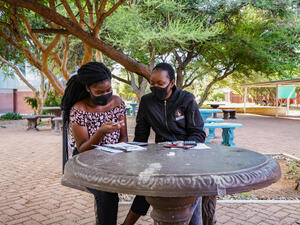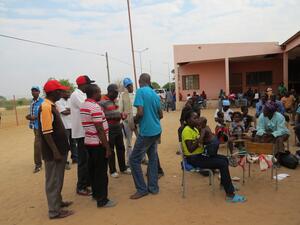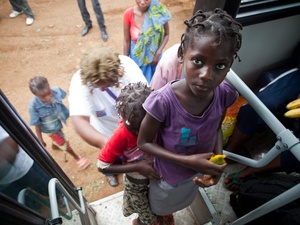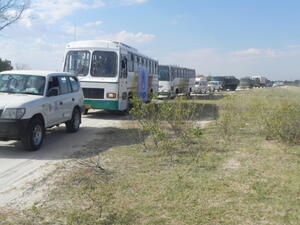Namibian refugees to return home soon
Namibian refugees to return home soon
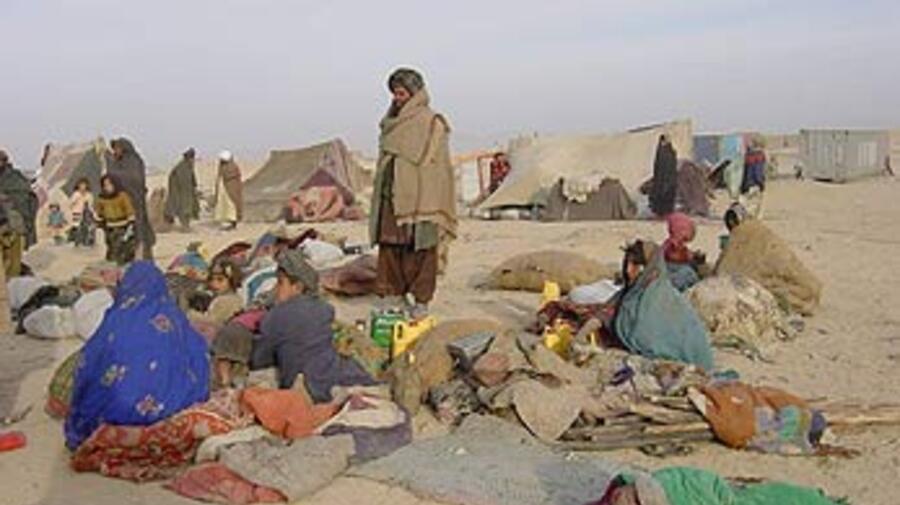
In recent weeks, more than 1,500 Afghan refugees have gone home from the makeshift camp at Chaman, Pakistan.
WINDHOEK, Namibia, April 18 (UNHCR) - Some 600 Namibian refugees in Botswana who have registered for repatriation could return home soon under a tripartite agreement signed between the governments of Namibia, Botswana and UNHCR last week.
They are part of a group of 2,400 refugees who had fled Namibia in late 1998 during a wave of violence caused by secessionist fighting in the Caprivi strip, on the border with Angola. Some members of the initial group had already returned in 1999, before a fresh upsurge of violence caused the repatriation to stop.
Returns could resume soon, as a repatriation commission was set up last week to oversee the implementation of the official tripartite repatriation agreement signed on April 11.
The first step will involve "go-and-see" visits for refugees to go and survey their area of return, in the north-eastern Kavango region of Namibia. This region has a lot of fertile land where people normally grow sorghum and maize. They will then be able to report back to their peers on the prevailing conditions in the region.
Although some of the 2,400 Namibian refugees, who include people of the Mafwe and San tribes, have insisted on going back, returns will be entirely voluntary. Those who wish to remain will continue to enjoy asylum and assistance in the Dukwe refugee camp, north-east of the Botswana capital, Gaborone. The camp is situated near the border with Zimbabwe.
Under the repatriation agreement, the government of Namibia guarantees that returnees will not be subjected to any form of discrimination or ill-treatment on account of their ethnic origin or political affiliation, or for having left the country as refugees. The agreement also stipulates that "the government of Namibia [will] facilitate the process of re-integration of returnees, [including] the recovery and/or restitution to the returnees of land or other property" on the condition that they can provide evidence of their ownership.
Botswana is currently hosting some 4,300 refugees, the largest group being the Namibians. Other nationalities such as Angolans, Somalis and Sudanese are hosted in the Dukwe camp or in urban settings.



